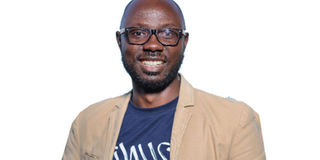Wealth creation by phone snatching

What you need to know:
But because we are a country of fronts and underhands, it is also hard to know who is lying about wealth or isn’t.
A few years ago, we were looking for a venue to host an event, so a friend called someone who we thought could help. After exchanging pleasantries, she asked who should be talked to, for permission to use the venue.
“Ha! You have to ask Janet,” he answered.
We didn’t pursue that lead beyond that, because how were we to proceed? None of us could verify the claim (or is it allegation?) of ownership, but if you live in Kampala long enough, you probably hear stories about who owns but doesn’t really own what property.
In fact, everyone who has had the misfortune of dealing with land brokers knows a story or two about getting shown property in the neighborhood and told how it belongs to a Brig Mugisha, and how the apartments back there are “for one of the first family members.” More often than not, there is no Brig Mugisha or first family member, but the ruse is only a front to sell what Bobi Wine called Kiwani.
But because we are a country of fronts and underhands, it is also hard to know who is lying about wealth or isn’t. So much that a friend once tried to work on a project to compile a list of wealthy Ugandans matched with their known sources of income, and failed because nothing could be authenticated or outrightly claimed.
It should tell you a lot about the soul of a country, if its socioeconomic fabric is knit with deception and collusion. In there, you might also find an explainer for why we are unable to get a lot of things right, considering that those who own the buck don’t claim it, yet those that claim it do not own it.
Does it, therefore, surprise anyone that every so often, there will emerge a “city tycoon” whose source of sudden wealth cannot be tracked; and yet, they will get accepted into every imaginable space? Or that the safest bet is that they will likely end up in court over some shady dealing?
Let me explain from the bottom, so you can make sense of the top. On the eve of Uganda’s 50th Independence celebrations, the man’s national football team, the Uganda Cranes, hosted Kenya’s Harambee Stars, to what would be the decider for a berth at the 2013 African Cup of Nations.
Uganda had last qualified for AFCON in 1978, so it can be assumed that nearly everyone at the Mandela National Stadium, in Namboole, had never seen the cranes play at the continental showpiece. Qualification was supposed to be the ultimate independence gift, the kind that has brewers running out of barley, and labour wards brimming nine months after. But it ended in tears – as those who follow these kinds of things might remember.
As is wont to happen in the match-chaos and frenzy, people and property usually get lost. As we walked out of the stadium, dejected and frothing at everything Kenyan, we chanced on the police, tussling with a ruffian who they had seen pinch a phone off a Kenyan fan.
The young man wasn’t putting up much of a defense by way of denial, but continually implored the police to exercise a good sense of judgment and consider his, an act of patriotism, since he had stolen from a Kenyan. He couldn’t understand why the Uganda police was making such a big deal of it. A couple of those watching the fracas joined in, urging the Police to let the man go, after all he had taken revenge on behalf on the Kenyans.
He had no legitimate claim to the phone and yet some people stood by, making a case for him to be freed. It is possible that in the past, he had shown up at home in possession of property and money whose origin he couldn’t explain. His people knew that he couldn’t possibly have earned it out of an honest day’s work, and probably even talked about it behind his back but wouldn’t dare ask him about it.
Following the carousel of that news story involving which bank lent how much money to who, and whether they should pay it back or not, got me feeling the same way I did all those years ago, as I watched in bemusement, the reaction to the young man try to wiggle his way out of the jaws of the law. That’s how we create wealth.
Mr Rukwengye is the founder, Boundless Minds. [email protected]




